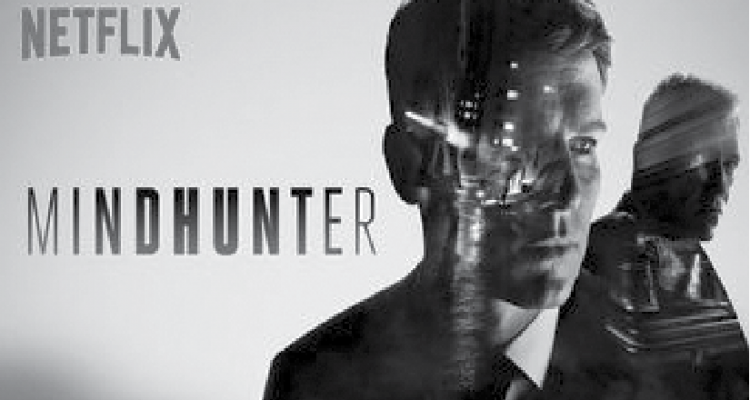One of the newest additions to the pantheon of Netflix-made television shows is “Mindhunter.” Released on Oct. 13, appropriately in time for Halloween, the story is centered around the FBI in 1977, when serial killers are becoming the subject of greater study and investigation.
Our main character is Holden Ford (Jonathan Groff), a young and ambitious federal agent. He’s extremely intelligent, clean cut and he also sets the plot in motion through his emotional sensitivity alone. It’s his desire to understand the minds and actions of psychopaths, rather than labeling them as simply evil and soulless, that prompts him to begin research in the psyche of these individuals. To the ire of his superiors, and aided only by his girlfriend, Debbie Mitford (Hannah Gross) and a grizzled fellow agent named Bill Tench (Holt McCallany), Holden regularly interviews convicted serial killers in the hopes of understanding them and preventing other crimes.
The story is based, in part, on the careers of John Douglas and Robert Ressler, two FBI agents who pioneered the psychological study of serial killers and other felons. All of the serial killers portrayed are based off of real-life counterparts, with their dialogue taken from interviews. The show is truly excellent in many ways. The tone is extremely dark, yet also manages to maintain an almost sterile air. In this way, it gets at the aura of the FBI quite well. The performances by the cast are noteworthy as well. Jonathan Groff works hard to maintain a meticulous and very arrogant portrayal that pays off immensely. Hannah Gross, who plays Debbie, is my favorite role. She’s sassy and sharp, without being fake or contrived. However, the scenes in which Holden and Debbie are together leave something to be desired, as they do not interact in a natural way. Groff seems physically uncomfortable with his co-star in many of their more intimate scenes. Due to this, their relationship feels superficial.
What is truly fascinating is the setting itself. Period pieces, or shows set in a period not our own, have become extremely commonplace, with shows such as “Mad Men,” “Downton Abbey” and “Boardwalk Empire” airing in recent years. They may get very caught up in the theatricalities that re-entering from a different time entail, but “Mindhunter” is never too heavy handed with its retro background. What’s important about the time period is not the clothing or the technology, it’s the state that the FBI is in. Taking place just after David Berkowitz’s serial killings of six people, known as the “Son of Sam” murders, in New York City, when agents were feeling more and more hopeless in the face of seemingly overwhelming odds, these men and women exist in a primitive society where killing a captor but saving the victims is considered a win. Due to the abundance of serial killings and other violent crimes that are coming to light, the system needs an overhaul. This is the situation the show thrusts us into.
David Fincher and Joe Penhall were the two major creative forces behind the spectacular series. Penhall is a British award-winning playwright who initially came up with the concept. While staying in Britain, Fincher was put in charge of the writing department, which gave him major license over the direction of the plot. Fincher, who also directed “The Curious Case of Benjamin Button” and “The Social Network,” is no stranger to stark, thought-provoking dramas. In this particular series, he is trying to convey fascination mixed with fear. This is made evident by his interview with Esquire magazine, “…to be a serial killer, you have to kill at least three people—which means you have to not get caught with the first two. For that to happen, you have to be fairly thoughtful in premeditation…. That’s the thing that I find terrifying about them.”
Mindhunter, with a 95 percent rating on Rotten Tomatoes, lives up to all of the expectations set for it. It is brilliant, dynamic and absolutely horrifying. And in our society, where mass shootings have become a continuous fact of life, perhaps it’s important to strip everything down to its basics and remember that preventing future situations is as important as stopping ones in progress.
I give the series 4.5/5 stars for its brilliance of execution and deft performances.


Leave a Reply